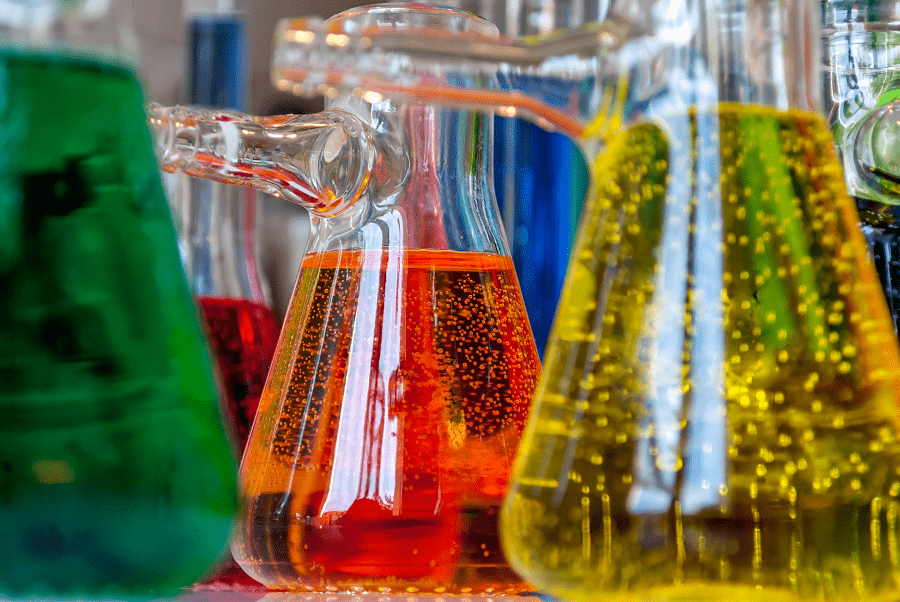Simply put, solvents are substances that dissolve other substances. In chemistry, this property of solvents is used to create complex formulations that are made for specific uses.
Although cleaners that contain solvents vary widely in terms of applications and effects, most industrial solvent-based cleaners are made from one of three types of solvents: oxygenated, hydrocarbon, and halogenated. Below, we look at their basic characteristics to help inform your cleaner purchase.
- Oxygenated Solvents
These types of solvents are formulated by extracting key elements from chemicals to create a cleaner that has the desired consistency and effect. More often than not, oxygenated solvents deliver exceptional purity (i.e., 99.0% to 99.9% pure), which supports their efficacy.
Near the end of the production process, oxygenated solvents undergo refinement that removes infinitesimal particulates, excess water, and other elements that would compromise the cleaner’s power and/or safety. Because the impurities can be predicted by the chemical process used to create the solvents, they can be produced quickly, which contributes to their affordable price.
The major types of oxygenated solvents are alcohol, glycol ethers, ketones, esters, and glycol ether esters.
- Halogenated Solvents
These types of solvents undergo a chlorination process that gives them similar qualities, especially in terms of aroma, distillation range, flash point, and density. Many halogenated formulations also share the same color. One of the primary differences among this class of solvents is the volume of liquid dissolved to create the desired formulation.
For users, one of the most immediately notable distinctions between halogenated and hydrocarbon solvents is that the former commonly have a highly pungent aroma. Regardless of formulation, halogenated solvents consist of chlorinated hydrocarbons.
- Hydrocarbon Solvents
These types of solvents are known for their complex composition, especially compared to oxygenated solvents. In addition, unlike halogenated solvents, hydrocarbon solvents tend to differ significantly in terms of aroma, distillation range, flash point, and density.
Because they vary widely in the elements they contain, halogenated solvents are commonly created as custom solvents, which are formulated to match the needs of a narrow range of users or a single user. There are two main types of hydrocarbon solvents: aliphatic and aromatic hydrocarbons.
Choosing Solvent Cleaners
Unless you have a formidable knowledge of the chemistry behind solvent cleaners, selecting solvent cleaners based on the solvent they contain can be difficult. For most users, the optimal way to select a cleaner is to consult a manufacturer of stock solvents and custom solvents.
Contact Ecolink Today
Ecolink is an experienced provider of environmentally safe and environmentally preferred industrial cleaners. We focus on making solvents that are safer for humans and the environment than previous generations of industrial cleaners. When you get a cleaner from us, you’re virtually guaranteed to never need a replacement due to Environmental Protection Agency (EPA) regulations.
To inquire about our products and services, please call us today at (800) 563-1305, or send us an email through our contact form. We look forward to helping you identify the right types of solvents for industrial cleaning!















